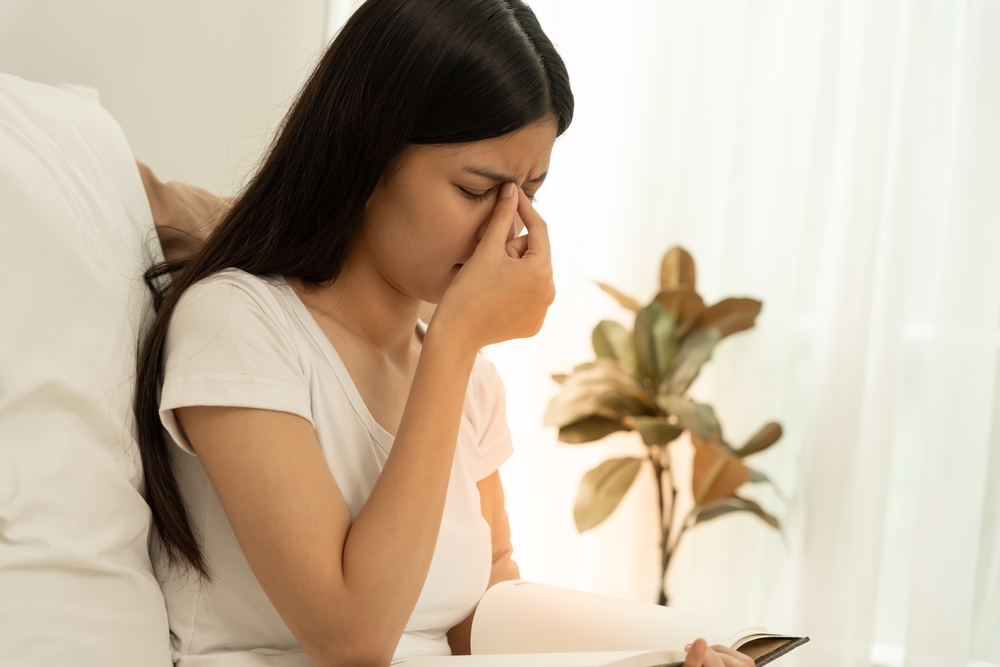
In a fast-paced city like New York, it’s easy to brush off tired, irritated eyes as just another part of daily life. Whether you're commuting through the subway, staring at screens all day, or navigating seasonal allergies, your eyes are constantly exposed to stressors that can lead to Dry Eye Syndrome. This common condition affects countless New Yorkers and can interfere with everything from productivity at work to simply enjoying a walk through Central Park.
What Is Dry Eye Syndrome?
Dry Eye Syndrome, or dry eye disease, occurs when your eyes do not produce enough tears or when the tears evaporate too quickly. Tears are essential for maintaining the health of the front surface of the eye and for providing clear vision. When tear production or quality is compromised, it can result in inflammation and damage to the surface of the eye.
Common Causes of Dry Eye
Dry eye can be triggered by a range of factors. These include:
• Aging: Tear production naturally decreases as we age, especially after age 50.
• Meibomian Gland Dysfunction (MGD): Blocked or underperforming oil glands in the eyelids prevent tears from staying on the eye’s surface.
• Blepharitis: Inflammation of the eyelids can interfere with the tear film and lead to dryness.
• Eye Surgery: Procedures like LASIK or cataract surgery can affect the nerves that stimulate tear production.
• Contact Lens Use: Long-term wear can disrupt the tear film and contribute to dry eye.
• Allergies: Allergic reactions can inflame the eyes and decrease tear stability.
• Medications: Antihistamines, antidepressants, and some blood pressure drugs can reduce tear production.
• Medical Conditions: Autoimmune diseases like Sjögren’s syndrome, rheumatoid arthritis, and thyroid disorders are often linked to dry eye.
Recognizing the Symptoms of Dry Eye
Dry eye symptoms can vary from mild to severe and may include:
• A stinging, burning, or scratchy sensation
• Redness or irritation
• Sensitivity to light
• Blurred or fluctuating vision
• A feeling of something “in the eye”
• Excessive tearing
• Eye fatigue, especially after screen use
If you're experiencing these symptoms regularly, it's important to seek a professional diagnosis.
Diagnosing Dry Eye
An accurate diagnosis is the first step toward effective treatment. At Eye & Health, we use diagnostic tools to evaluate the quality, quantity, and stability of your tears. We also assess the health of the meibomian glands and the surface of your eyes. We look for key indicators, such as tear breakup time, tear volume, gland functionality, and signs of inflammation. Identifying the underlying cause allows us to personalize your treatment plan for better, longer-lasting relief.
Effective Treatment Options
Because dry eye syndrome can stem from a variety of causes, treatment is tailored to each individual. Common options include:
• Eyelid Hygiene: Regular cleaning of the eyelids can help reduce inflammation and manage conditions like blepharitis or MGD.
• Artificial Tears: Over-the-counter lubricating eye drops can provide quick, temporary relief by supplementing natural tears.
• Prescription Eye Drops: Medications reduce inflammation and increase tear production.
• Nutritional Supplements: Omega-3 fatty acids have been shown to support healthy tear production and reduce inflammation.
• Scleral Lenses: These specialty contact lenses create a protective reservoir of moisture, especially helpful for severe dry eye.
• Punctal Plugs: Tiny devices inserted into the tear ducts to block drainage and help retain moisture on the eye’s surface.
Our doctor will recommend the right combination of therapies based on your symptoms and test results.
Take the First Step Toward Lasting Relief
Living with dry eye doesn’t have to be your new normal. Whether your symptoms are mild or severe, identifying the root cause and choosing the right treatment can restore comfort and protect your vision.
If you’re experiencing dry eye symptoms, schedule a consultation at Eye & Health for personalized treatment options. Visit our office in New York, New York, or call (212) 228-0950 to book an appointment today.









